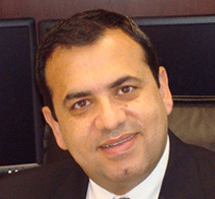
Batarseh is a Professor of Electrical Engineering at the University of Central Florida. His work focuses on developing innovative power electronic systems for grid-tied solar applications.
The research goal is to design advanced inverter technologies to achieve high efficiency, low cost inverter topologies, enabled by advanced digital control strategies for enhanced performance, fault protection, system integration, and health monitoring for power grid.
His research findings have been licensed to three companies. He is a founding partner of two technology companies, Petra Solar and Apecor.
He has received 26 patents, graduated 42 Ph.D students and 70 MS and undergraduate students. He has published 85 journal papers, more than 250 refereed papers at international conferences, and six book and book chapters. Batarseh is a Fellow of the National Academy Inventors (NAI), IEEE and the AAAS. Holds a Professional Engineering (PE) License in Florida.
Presentation Title :Keynote Speech on Recent Advances in Distributed Solar Conversion to Enable Smart Cities
Abstract
In recent years, major research progress has been made in advancing photovoltaic energy conversion technologies including the single-phase and three-phase microinverters. This progress has resulted in more and more countries consider deploying smart-grid technologies to enable smart communities and cities. These inverters are widely used in PV based energy harvesting systems. The vast majority of these systems have been based on medium to high power string inverters. Recently, micro-inverters have been shown to have advantageous over their string inverter counterparts in both grid-tied PV energy harvesting and standalone micro-grid systems with energy storage. Some of these are simplified installation, no high voltage DC wiring, no single point of failure and improved energy harvesting. This talk will focus on recent advancement in power electronics inverters for PV energy conversion focusing on the advantages and improvements in the three-phase microinverter three-phase and how the new solar energy conversion technologies may incorporate smart-grid capabilities in distributed PV systems.
